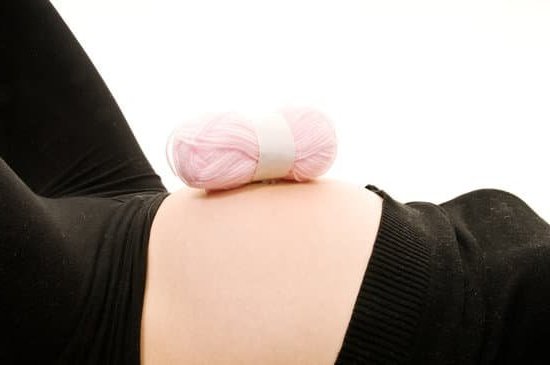Pregnancy is a time of excitement and anticipation, but for many women, it can also bring about unexpected discomforts such as back pain. In this article, we will explore the various causes of back pain during pregnancy and the importance of adopting proper sleeping positions to alleviate this common issue. We will also provide practical tips and recommendations to help pregnant women find relief and enjoy a good night’s sleep.
Pregnancy is a beautiful journey, but it can take a toll on the body, leading to various discomforts and challenges. One of the most common complaints among expectant mothers is back pain, which can be particularly bothersome during sleep. Finding the right sleeping position and support can make all the difference in relieving this discomfort and ensuring a restful night.
Throughout pregnancy, a woman’s body undergoes numerous changes, including weight gain, hormonal shifts, and an expanding uterus. These physical transformations can place added strain on the back, leading to muscle tension and discomfort. As such, it is crucial for pregnant women to prioritize their comfort and well-being while sleeping in order to effectively manage back pain. Throughout this article, we will delve into the best practices for achieving optimal rest during pregnancy and relieving back pain while sleeping.
Causes of Back Pain During Pregnancy
During pregnancy, many women experience back pain due to the physical changes that occur in their bodies. The extra weight gained during pregnancy, as well as the shifting of the body’s center of gravity, can put strain on the back and lead to discomfort.
Additionally, hormonal changes can cause the ligaments in the pelvic area to become more relaxed, which can also contribute to back pain. It is important for pregnant women to find ways to alleviate this discomfort, especially while sleeping.
One of the main causes of back pain during pregnancy is poor posture and improper sleeping positions. When a pregnant woman sleeps in a position that puts strain on her back, it can exacerbate the discomfort she feels. Finding appropriate sleeping positions and utilizing supportive pillows and mattresses can greatly alleviate back pain during pregnancy while sleeping.
Pregnant women should avoid sleeping on their backs because this can put pressure on their spine and major blood vessels, leading to discomfort and potential health risks for both the mother and baby. Instead, it is recommended for pregnant women to sleep on their side with a pillow between their knees to relieve pressure on the lower back. This position helps maintain the natural curve of the spine and provides support for the abdomen.
Importance of Proper Sleeping Positions During Pregnancy
During pregnancy, proper sleeping positions are essential for relieving back pain and ensuring the overall comfort and well-being of the expectant mother. As the body undergoes significant changes, including weight gain and a shift in the center of gravity, it can put added strain on the back, leading to discomfort and pain, especially during sleep.
Additionally, hormonal changes can contribute to ligament relaxation, which may also affect the alignment of the spine and exacerbate back pain. In this section, we will explore the importance of proper sleeping positions during pregnancy and provide tips on how to relieve back pain while sleeping.
The Impact of Sleeping Positions on Back Pain
The position that a pregnant woman sleeps in can greatly impact her back pain. By choosing a suitable sleeping position, she can alleviate pressure on her lower back, hips, and pelvis. Sleeping in an improper position may exacerbate discomfort and lead to additional strain on the spine. This is why it is crucial for pregnant women to be mindful of their sleeping posture and make adjustments as necessary to support their changing bodies.
Optimal Sleeping Positions for Back Pain Relief
Two recommended sleeping positions for relieving back pain during pregnancy are sleeping on your side with a pillow between your knees or using a pregnancy pillow for support. It is important to avoid sleeping on your back as this position can put added pressure on your spine and restrict blood flow to both you and your baby. By making these simple adjustments to your sleeping routine, you can effectively reduce discomfort and promote better spinal alignment throughout the night.
Using Pillows and Mattresses for Added Support
In addition to adjusting your sleeping position, using supportive pillows and mattresses designed specifically for pregnant women can also help relieve back pain during sleep. Pregnancy pillows provide extra support for your growing belly and help maintain proper spinal alignment, while mattresses with appropriate firmness levels can alleviate pressure points and offer optimal comfort.
Best Sleeping Positions to Relieve Back Pain During Pregnancy
During pregnancy, many women experience back pain due to the added weight of the baby, changes in posture, and hormonal changes that loosen ligaments and joints. This can make it difficult to find a comfortable sleeping position, leading to disrupted sleep and increased discomfort. However, there are several sleeping positions that can help alleviate back pain and promote better sleep for pregnant women.
Here are some of the best sleeping positions to relieve back pain during pregnancy:
- Side Sleeping: Sleeping on your side with a pillow between your knees can help align your spine and alleviate pressure on your lower back.
- Semi-Fetal Position: Lying on your side with your knees bent and a pillow tucked between your legs can also help reduce strain on the back.
- Elevated Head and Chest: Propping yourself up with pillows to elevate your head and chest slightly can ease back pain by reducing pressure on the lower back.
It is important for pregnant women to prioritize their comfort and support while sleeping in order to minimize back pain. Experimenting with different sleeping positions and utilizing pillows or other supports can help pregnant women find relief from back pain during sleep. Incorporating these techniques into bedtime routines can lead to improved quality of sleep throughout pregnancy.
Recommended Pillows and Mattresses for Pregnant Women
Pregnancy is an exciting time, but it can also bring about a lot of discomfort, especially when it comes to back pain. As the body undergoes changes to accommodate the growing baby, many women experience back pain during pregnancy. This discomfort can often be exacerbated at night while trying to sleep. However, there are ways to alleviate this discomfort and improve sleep quality.
Importance of Supportive Pillows and Mattresses
Choosing the right pillows and mattresses is crucial for pregnant women who are experiencing back pain. A supportive mattress can help distribute body weight evenly and relieve pressure on the spine. Look for a mattress that provides adequate support while still being comfortable. Pillows are also important for maintaining proper spinal alignment while sleeping.
Recommended Pillows for Pregnant Women
Pregnancy pillows, also known as maternity or body pillows, are designed to provide support for the entire body during pregnancy. They come in various shapes and sizes to accommodate different sleeping positions and support needs. A full-body pillow can help pregnant women maintain a side-lying position, which is often recommended by healthcare professionals to relieve back pain.
Choosing the Right Mattress
When selecting a mattress during pregnancy, look for one that offers medium-firm support. Memory foam mattresses can contour to the shape of your body while providing necessary support. Additionally, some mattresses have adjustable firmness settings that allow you to customize your comfort level as your pregnancy progresses.
By investing in supportive pillows and mattresses, pregnant women can significantly reduce back pain during sleep and enjoy better rest throughout their pregnancy journey.
Importance of Pregnancy Support Belts and Body Pillows
During pregnancy, a woman’s body goes through many physical changes that can lead to back pain. One way to relieve this discomfort is by using pregnancy support belts and body pillows. These products are designed to provide support and comfort, allowing pregnant women to alleviate back pain while sleeping.
Pregnancy support belts are specially designed to support the lower back and abdomen, relieving pressure and reducing strain on the spine. They can also help improve posture, which is important for preventing and reducing back pain during pregnancy. It is essential to choose a pregnancy support belt that fits properly and provides the right amount of support without being too restrictive.
Body pillows are another essential tool for relieving back pain during pregnancy while sleeping. A body pillow can be used to support different areas of the body, such as the back, hips, and pelvis, promoting better alignment and reducing pressure on the spine. By using a body pillow, pregnant women can find a comfortable sleeping position that helps alleviate back pain.
In addition to using pregnancy support belts and body pillows, it is important for pregnant women to pay attention to their overall sleeping environment. This includes investing in a supportive mattress and using additional pillows for elevation or cushioning as needed. Creating a comfortable sleeping environment can further aid in relieving back pain during pregnancy while sleeping.
Tips for Creating a Comfortable Sleeping Environment
During pregnancy, creating a comfortable sleeping environment is crucial for relieving back pain and ensuring a good night’s sleep. One of the first things to consider is the mattress. It’s important to invest in a good quality mattress that provides adequate support for your growing belly and back. Look for a mattress that is medium-firm and provides enough cushioning to relieve pressure points.
In addition to the mattress, consider the bedding and pillows. Using a body pillow can provide additional support for your back and help keep your spine aligned while sleeping on your side. When it comes to bedding, opt for soft, breathable fabrics that promote airflow and keep you cool throughout the night.
Another important factor in creating a comfortable sleeping environment during pregnancy is maintaining a suitable temperature in the bedroom. Keep the room cool and well-ventilated to prevent overheating, which can contribute to discomfort and poor sleep quality.
Furthermore, reducing distractions in the bedroom can also contribute to a more restful sleep. Consider using blackout curtains or an eye mask to block out light, as well as white noise machines or earplugs if noise is disruptive. Creating a calm and peaceful atmosphere in the bedroom can help you relax and unwind before bed, ultimately leading to better sleep quality.
By implementing these tips for creating a comfortable sleeping environment during pregnancy, you can alleviate back pain while getting the rest you need to support a healthy pregnancy.
Additional Tips for Relieving Back Pain During Pregnancy
During pregnancy, back pain can be a common and uncomfortable symptom for many women. In addition to finding the best sleeping positions, there are other ways to relieve back pain during pregnancy while sleeping. One effective method is using heat therapy, such as a warm bath or heating pad, to help relax the muscles in the lower back. Gentle massages from a partner or professional can also provide relief by helping to alleviate tension in the back muscles.
Another helpful tip for relieving back pain during pregnancy while sleeping is practicing prenatal yoga or stretching exercises. Prenatal yoga classes often focus on gentle stretching and strengthening exercises specifically tailored for pregnant women, which can help improve flexibility and reduce discomfort in the back. Similarly, incorporating regular stretching exercises into your daily routine can also help alleviate back pain and promote better sleep during pregnancy.
Lastly, utilizing good posture throughout the day can make a significant difference in reducing back pain while sleeping during pregnancy. Avoiding slouching and maintaining proper alignment of the spine when sitting or standing can help prevent unnecessary strain on the back muscles. Additionally, using supportive footwear with proper arch support can also contribute to alleviating back pain by providing stability and promoting good posture.
| Effective Methods | Description |
|---|---|
| Heat Therapy | Using warm baths or heating pads to relax lower back muscles |
| Prenatal Yoga and Stretching Exercises | Gentle stretching and strengthening exercises specifically tailored for pregnant women |
| Good Posture and Supportive Footwear | Avoiding slouching and using proper footwear for stability and posture |
Conclusion and Recap of Key Points for Getting a Good Night’s Sleep During Pregnancy
In conclusion, experiencing back pain during pregnancy is a common issue that many women face. However, by understanding the causes of this discomfort and the importance of proper sleeping positions, pregnant women can take steps to alleviate their pain and get a good night’s sleep. By following the recommended sleeping positions, using supportive pillows and mattresses, and incorporating pregnancy support belts and body pillows, expecting mothers can find relief from back pain while sleeping.
It is crucial for pregnant women to prioritize their comfort and well-being during this sensitive time. Creating a comfortable sleeping environment by adjusting room temperature, using relaxation techniques, and practicing gentle exercises can also contribute to better sleep quality and reduced back pain. Additionally, following additional tips such as staying active throughout the day, maintaining good posture, and seeking prenatal care from healthcare professionals can further help in relieving back pain during pregnancy while sleeping.
In essence, addressing back pain during pregnancy while sleeping requires a multi-faceted approach that involves paying attention to one’s body needs and making necessary adjustments to promote better sleep quality. By implementing the recommended strategies discussed in this article, expecting mothers can find relief from back pain and enjoy a restful night’s sleep throughout their pregnancy journey.
Frequently Asked Questions
Why Is Pregnancy Back Pain Worse at Night?
Pregnancy back pain is often worse at night due to the change in the body’s center of gravity, causing strain on the back muscles. Additionally, the relaxation hormone released during pregnancy can contribute to discomfort.
What Can I Take for Severe Back Pain While Pregnant?
When experiencing severe back pain during pregnancy, it’s important to consult with a healthcare provider before taking any medication. They may recommend safe options such as acetaminophen or physical therapy to alleviate discomfort.
How Can I Decompress My Spine While Pregnant?
To decompress the spine while pregnant, gentle stretches and exercises designed specifically for prenatal care can help relieve pressure on the spine. Yoga, prenatal massage, and using a pregnancy support pillow can also aid in decompressing the spine and relieving discomfort.

Welcome to my fertility blog. This is a space where I will be sharing my experiences as I navigate through the world of fertility treatments, as well as provide information and resources about fertility and pregnancy.





